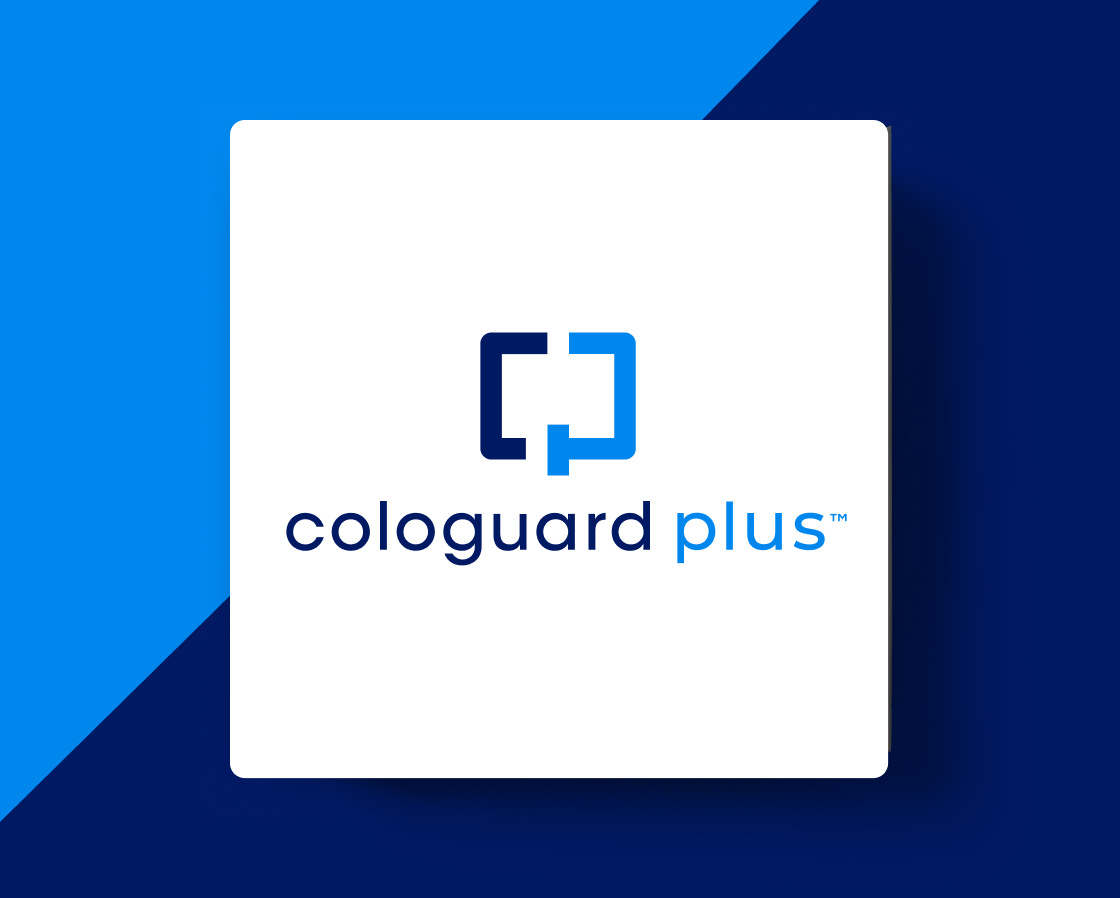No prep, no time off, no reason not to: how the Cologuard test works
The Cologuard test is for adults 45+ at average risk. It’s a noninvasive and effective prescription-based colon cancer screening test. You collect a sample at home, then ship it back to our labs for testing. It looks for both abnormal DNA and blood in your stool.


INTRODUCING THE COLOGUARD PLUS™ TEST
Advanced cancer detection. Fewer false positives.
Building on 10 years of success and innovation, the next-generation Cologuard test is designed for enhanced accuracy—with all the simplicity and convenience you’ve come to expect from us.
The Cologuard test detects 92% of colon cancers, even in the early stages.1

Timing is everything
The American Cancer Society
recommends colon cancer screening at age 45.2
Is the Cologuard test right for you?
No matter your race, gender, or ethnicity — everyone is at risk for colon cancer.
Every reason to take action
The Cologuard test’s signature box contains all you need to collect and send your sample back to us.
Zero downtime
No in-person appointment is needed. Complete your kit at home and on your schedule.
No need to prep
Keep your diet and medications exactly as they are.
Delivered right to your door
After your kit is prescribed, we’ll ship it right to you.
Screen every 3 years3
Unlike other noninvasive options that encourage yearly screenings, the American Cancer Society recommends screening again three years after a negative Cologuard result.
Over 96% of people pay $04
The Cologuard test is covered for people who are at average risk for colon cancer by Medicare and most major insurers.

Backed by technology and research
Powered by science, the Cologuard test’s ability to detect colon cancer ensures that each patient receives the highest quality care possible.With its ease of use and proven effectiveness, the Cologuard test stands out among noninvasive colon cancer screening kits.
The Cologuard® difference
From start to finish
Request a Cologuard test kit online or through your provider.

It comes right to your door with step-by-step instructions.

When you’re ready to use your kit, use the triple S method: Set up your test, collect a sample, and ship it back to our lab for testing.

Ready to Get Started?
Request your Cologuard test prescription today. We can help you get one from your health care provider or a telehealth specialist.
